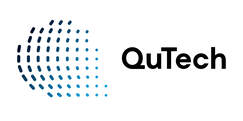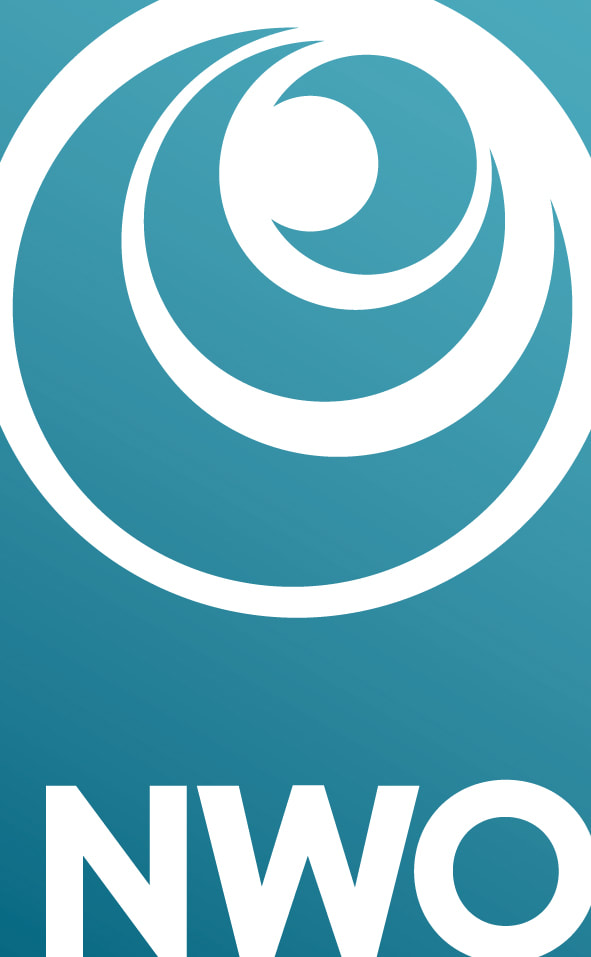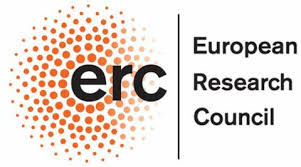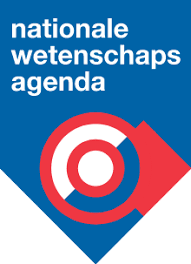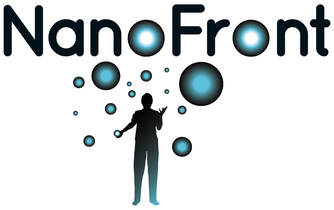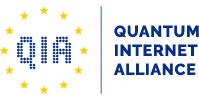Welcome!We are a research group at QuTech, an institute for quantum science and technology at Delft University. Our team investigates solid-state spins and their applications for quantum information and physics. We use a combination of quantum optics, magnetic resonance and nanoscale fabrication to detect and control individual spins associated to defect centers. With these controlled systems of coupled spins, we aim to answer questions such as: How does decoherence emerge in complex quantum systems? Can we use quantum coherence to realize novel improved sensors? Can we protect quantum states and computations indefinitely so that large-scale quantum computations become possible? And does quantum mechanics continue to accurately describe such extended large-scale quantum systems?
We are currently looking for enthusiastic students and postdocs to join our team. Please contact Tim Taminiau if you are interested. We are part of:
Funded by:
|
Latest newsThe NanoArt exhibition Lens(less)ness was opened in the TU Delft Library.
The manuscript of Hans and Nicolas on the control of electron-spin pairs is now on ArXiv.
Hans defended his PhD! Congrats, Hans!
The paper Robust quantum-network memory based on spin qubits in isotopically engineered diamond was published in npj Quantum Information.
Mohamed his paper on fault tolerant operation of a logical qubit was published in Nature. Congrats to Mohamed and the other authors!
Sjoerd gave a lecture for laymen in the Delft theatre Theater de Veste.
Our manuscript on adiabatic DD control is published.
Our manuscript on spin pairs with natural dephasing times of T2* = 1.9(2) minutes is published in PRX.
The Taminiau lab reports the realisation of a discrete time crystal in Science (media highlights). Congrats to Joe and Conor and the rest!
Conor his paper on robust quantum-network memory is in the arXiv. A great collaboration with the Elkouss and Hanson labs at QuTech.
Congratulations to Conor for defending his PhD cum laude!
Mohamed is awarded a Rubicon fellowship! Congrats Mohamed!
Our manuscript on controlling and entangling P1 centers is now published in Nature Communications.
Our work on deep learning for quantum sensing of individual spins is published.
Maarten has obtained his PhD! Congratulations Maarten!
Mohamed successfully defends his PhD! Congratulations Mohamed!
Mohamed his paper wins the prestigious Kavli Delft publication prize (news). Congrats Mohamed and all co-authors! Look here for a nice article about Mohamed and his prize winning work.
The NV0 paper of Conor is published in Phys. Rev. Lett. and highlighted by the APS. Congrats Conor!
Exciting news: We launch a new research collaboration with Fujitsu (press release, story in Delta).
Our new papers on the orbital and spin dynamics of NV0 and on deep-learning enhanced nuclear spin detection are published.
Our atomic-scale MRI experiment is published in Nature (video explanation by Mohamed). The work was highlighted in the Volkskrant, the NRC, and other media.
Our 10-qubit register is published in Phys. Rev. X and highlighted in Nature and various other media.
Aletta, Tim, Julia and the rest of the Delft quantum vision team have published the quantum internet magazine (website, pdf), which analyses the future impact of quantum technology on society and governance.
Tim is awarded an ERC starting grant! This grant will enable our team to investigate quantum simulations and computations distributed over quantum networks (more, ERC webpage ).
Our NWA proposal "Quantum microscopy: A new tool for future technologies" has been accepted (more).
Two new papers: a 10-qubit system with 1 minute coherence and the atomic-scale imaging of nuclear spins now in the arXiv.
Mohamed takes home a poster prize (more).
Maarten his paper on the coherence of NV centers generated by ion implantation and Julia's paper on non-destructive 3-qubit parity measurements are now available online.
Our latest paper, which demonstrates coherence times exceeding one second in a coupled system of up to 20 spins, is published.
Julia wins the NWO Minerva prize for our error correction paper. Congratulations Julia!
Tim has been awarded a Dutch Vidi grant by NWO (more).
Tenured: Tim successfully passed his tenure-track evaluation. A big thank you to all the team for making this possible.
Julia becomes the first PhD graduate of the group! Congrats Julia!
Our experiment on quantum Zeno subspaces in multi-qubit systems is published in Nature Communications (more) and we welcome Maarten to our team!
The Bell paper wins the 2016 Kavli publication prize!
Change of the guard: Arian and Peter successfully defended their theses. Congratulations both! Mohamed joins the team. Welcome Mohamed!
Update: Our robust nuclear spin memories are published in PRX, the Bell paper won the Ehrenfest Prize, and our research was mentioned in several media (Volkskrant, Parool, Kennislink).
Our demonstration of active quantum error correction is published in Nature Communications, is widely covered in the Dutch media, and even got picked up by the Royal family. (learn more)
A new interview about our work is the cover story of SURF magazine.
Our loophole-free Bell test is chosen as a top 10 scientific breakthrough of 2015 by Science magazine and selected by Nature as one of the science events that shaped 2015.
Our loophole-free Bell test is published in Nature and covered in the worldwide media. (learn more)
Tim is awarded the Fresnel prize for fundamental research of the European Physical Society! (learn more)
|
Proudly powered by Weebly
